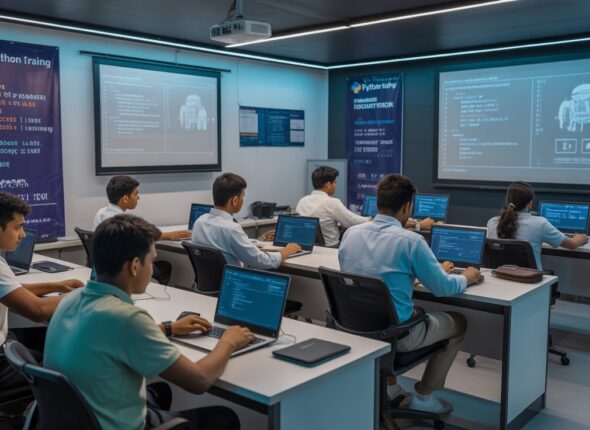World
Class Instructor
1:1 with
Industry Expert
400+
Global Hiring
55%
Avg. Salary Hike
- Overview
- Course Details
- Syllabus
- FAQ
Acquire Essential DevOps Skills: Master DevOps, Earn Certification, Launch Your IT Career!
Elysium Academy has established itself as a leader in DevOps education. Our meticulously designed course provides an in-depth, all-encompassing curriculum that prepares participants to navigate the complex landscape of modern DevOps practices. With a blend of theoretical knowledge and practical skills, this course ensures that students are well-equipped to streamline processes and enhance software delivery.
2.2
Version
90 Hours
Duration
25 Hours
Theory
65 Hours
Practical
Version
2.2
Duration
65 Hours
Theory
12 Hours
Practical
65 Hours
- Industry Based Projects
- Personalized coordinator.
- Trainer feedback.
- Trainer availability post sessions.
- Get your staff certified.
- Certificate from governing bodies.
- Recognized worldwide
- Hands on assignment
- Master DevOps fundamentals, including CI/CD, automation, and collaboration.
- Dive into advanced concepts such as infrastructure as code (IaC) and container orchestration.
- Learn to implement and manage robust CI/CD pipelines.
- Gain expertise in automation tools like Jenkins, Docker, and Kubernetes.
- Understand and apply monitoring and logging best practices.
- Develop practical skills through hands-on labs and real-world simulations.
Top companies offer this course to their employees
Course was selected for our collection of top-rated courses trusted by businesses worldwide.
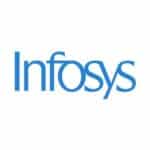
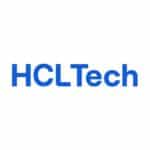
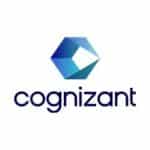

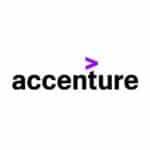
Salary
PER ANNUM
₹ 5.5 L
Job Growth
Current Month
32%
Offer Jobs
2026
15,000+
The Microsoft DevOps Professional program offers learners the opportunity to master the essential skills required for modern DevOps practices. Get started with the dynamic field of DevOps and learn about CI/CD, automation, infrastructure as code, and more with the help of experienced instructors. Learners will emerge prepared to streamline processes and enhance software delivery in real-world scenarios. Here are some of the skills you will need to learn if you want to become a DevOps professional.
The DevOps Professional course teaches you to master the concepts of DevOps. Through this DevOps training, you will learn Continuous Integration/Continuous Deployment (CI/CD), Automation, Infrastructure as Code (IaC), Containerization, and Monitoring & Logging.
- DevOps is the infrastructure that enables efficient and effective software development and delivery.
- DevOps is the comprehensive approach to automating and improving software deployment processes.
- Automation involves creating scripts and processes to streamline repetitive tasks.
- DevOps professionals understand and optimize the software development lifecycle.
- DevOps practices are the foundation on which modern IT operations and development are built.

Our Training Program Benefits
- Live, interactive training by experts.
- Curriculum that focuses on the learner.
- Challenge-based, hands-on project.
- Opportunities for team building.
- Cost- saving training.
- Convenient for your employees.
- Completely tailor-made curriculum.
Chapter-1 Configure activity traceability and flow of work
- Plan and implement a structure for the flow of work and feedback cycles
- Identify appropriate metrics related to flow of work, such as cycle times, time to recovery, and lead time
- Integrate Azure Pipelines and GitHub Actions with work item tracking tools
- Implement traceability policies decided by development
- Integrate a repository with Azure Boards
Chapter-2 Configure collaboration and communication
- Communicate actionable information by using custom dashboards in Azure Boards
- Document a project by using tools, such as wikis and process diagrams
- Configure release documentation, including release notes and API documentation
- Automate creation of documentation from Git history
- Configure notifications by using webhooks
Chapter-3 Design and implement a source control strategy
- Design and implement an authentication strategy
- Design a strategy for managing large files, including Git LFS and git-fat
- Design a strategy for scaling and optimizing a Git repository, including Scalar and cross-repository sharing
- Implement workflow hooks
Chapter-4 Plan and implement branching strategies for the source code
- Design a branch strategy, including trunk-based, feature branch, and release branch
- Design and implement a pull request workflow by using branch policies and branch protections
- Implement branch merging restrictions by using branch policies and branch protections
Chapter-5 Configure and manage repositories
- Integrate GitHub repositories with Azure Pipelines
- Configure permissions in the source control repository
- Configure tags to organize the source control repository
- Recover data by using Git commands
- Purge data from source control
Chapter-6 Design and implement pipeline automation
- Integrate pipelines with external tools, including dependency scanning, security scanning, and code coverage
- Design and implement quality and release gates, including security and governance
- Design integration of automated tests into pipelines
- Design and implement a comprehensive testing strategy (including local tests, unit tests, integration tests, and load tests)
- Design and implement UI testing
- Implement orchestration of tools, such as GitHub Actions and Azure Pipelines
Chapter-7 Design and implement a package management strategy
- Design a package management implementation that uses Azure Artifacts, GitHub Packages, NuGet, and npm
- Design and implement package feeds, including upstream sources
- Design and implement a dependency versioning strategy for code assets and packages, including semantic versioning and date-based
- Design and implement a versioning strategy for pipeline artifacts
Chapter-8 Design and implement pipelines
- Select a deployment automation solution, including GitHub Actions and Azure Pipelines
- Design and implement an agent infrastructure, including cost, tool selection, licenses, connectivity, and maintainability
- Develop and implement pipeline trigger rules
- Develop pipelines, including classic and YAML
- Develop complex pipeline scenarios, such as containerized agents and hybrid
- Configure and manage self-hosted agents, including virtual machine (VM) templates and containerization
- Create reusable pipeline elements, including YAML templates, task groups, variables, and variable groups
- Design and implement checks and approvals by using YAML environments
Chapter-9 Design and implement deployments
- Design a deployment strategy, including blue/green, canary, ring, progressive exposure, feature flags, and A/B testing
- Design a pipeline to ensure reliable order of dependency deployments
- Plan for minimizing downtime during deployments by using VIP swap, load balancer, and rolling deployments
- Design a hotfix path plan for responding to high-priority code fixes
- Implement load balancing for deployment, including Azure Traffic Manager
- Implement feature flags by using Azure
- Implement application deployment by using containers, binary, and scripts
- Recommend a configuration management technology for application infrastructure
- Implement a configuration management strategy for application infrastructure, including IaC
- Define an IaC strategy, including source control and automation of testing and deployment
- Design and implement desired state configuration for environments, including Azure Automation State Configuration, Azure Resource Manager, Bicep, and Azure Automanage Machine Configuration
Chapter-10 Maintain pipelines
- Monitor pipeline health, including failure rate, duration, and flaky tests
- Optimize pipelines for cost, time, performance, and reliability
- Analyze pipeline load to determine agent configuration and capacity
- Design and implement a retention strategy for pipeline artifacts and dependencies
- Implement and manage service connections
- Implement and manage personal access tokens
- Implement and manage secrets, keys, and certificates by using Azure Key Vault, GitHub secrets, and Azure Pipelines secrets
- Design and implement a strategy for managing sensitive files during deployment
- Design pipelines to prevent leakage of sensitive information
Chapter-11 Automate security and compliance
- Automate analysis of source code by using GitHub code scanning, GitHub secrets scanning, pipeline-based scans, and SonarQube
- Automate security scanning, including container scanning and OWASP ZAP
- Automate analysis of licensing, vulnerabilities, and versioning of open-source components by using Mend Bolt and GitHub Dependency Scanning
- Configure and integrate monitoring by using Azure Monitor
- Configure and integrate with monitoring tools, such as Azure Monitor and Application Insights
- Manage access control to the monitoring platform
- Configure alerts for pipeline events
Chapter-12 Scanning, Analyze metrics
- Inspect distributed tracing by using Application Insights
- Inspect application performance indicators
- Inspect infrastructure performance indicators, including CPU, memory, disk, and network
- Identify and monitor metrics for business value
- Analyze usage metrics by using Application Insights
- Interrogate logs using basic Kusto Query Language (KQL) queries
What is the Microsoft DevOps Professional course?
The Microsoft DevOps Professional course is designed to provide learners with the essential skills and knowledge required to implement and manage DevOps practices using Microsoft technologies and tools.
Who should take the Microsoft DevOps Professional course?
The course is ideal for aspiring DevOps engineers, IT professionals, software developers, and anyone looking to enhance their skills in DevOps practices and tools.
What topics are covered in the Microsoft DevOps Professional course?
Topics include Continuous Integration/Continuous Deployment (CI/CD), automation, infrastructure as code (IaC), containerization, monitoring, and logging using Microsoft tools and platforms.
Do I need any prerequisites to enroll in the Microsoft DevOps Professional course?
While there are no mandatory prerequisites, it is recommended that participants have basic knowledge of software development and IT operations. Familiarity with cloud computing concepts and Microsoft technologies is beneficial.
How is the course delivered?
The course is delivered through a blend of live instructor-led sessions, hands-on labs, and self-paced study materials. This hybrid approach ensures comprehensive learning and practical experience.
What type of projects will I work on during the course?
Participants will engage in real-world projects such as setting up CI/CD pipelines, automating infrastructure deployment, containerizing applications, and implementing monitoring solutions using Microsoft Azure and related tools.
Will I receive a certificate upon completion of the course?
Yes, participants will receive a certificate of completion from Elysium Academy. Additionally, successful completion of the course prepares you for relevant Microsoft certification exams.
How long is the course, and how much time should I dedicate weekly?
The course duration is typically 8-12 weeks. It is recommended to dedicate around 10-15 hours per week to coursework, including lectures, labs, and self-study.
Is there support available after I complete the course?
Yes, our instructors and support team are available to provide guidance and answer any questions you may have even after the course has ended. Additionally, we offer resources for exam preparation.
How does the Microsoft DevOps Professional course benefit my career?
The course enhances your credibility and demonstrates your expertise in DevOps practices using Microsoft technologies. It opens up various job opportunities, increases earning potential, and is highly valued by employers in the IT industry.
Course Audio Explanation (தமிழ்)

- Microsoft – DevOps Professional Course Professional
- Duration: 90 Hours
- Level: Beginner
- Days: 90 Days
- Chapters: 12
- Language: English
- Certifications: Yes
- Code: EAPL/PROF/PRTC24
- Course Code: EAPMD
- Sub Category: Cloud Computing Training Course
Microsoft – DevOps Professional Features

Comprehensive DevOps Fundamentals
Understand the core principles of DevOps, including collaboration, automation, and continuous integration and delivery (CI/CD).

Hands-On Automation with Popular Tools
Gain practical experience with leading DevOps tools such as Jenkins, Docker, Kubernetes, and Ansible to automate processes.

Advanced CI/CD Pipeline Development
Learn to design, implement, and manage robust CI/CD pipelines to ensure rapid and reliable software delivery.

Infrastructure as Code (IaC) Mastery
Master Infrastructure as Code (IaC) practices using tools like Terraform and AWS CloudFormation to automate and manage.

Monitoring and Logging Best Practices
Develop skills in monitoring and logging using tools like Prometheus, Grafana, and ELK stack to ensure system reliability and performance.

Security and Compliance Integration
Integrate security practices into your DevOps workflows, learning how to implement DevSecOps to enhance the security of applications.
What Will You Learn?
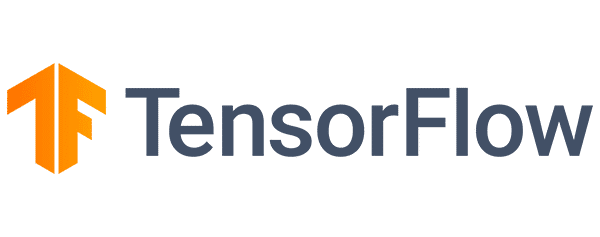





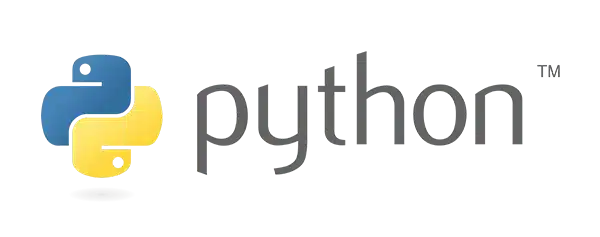

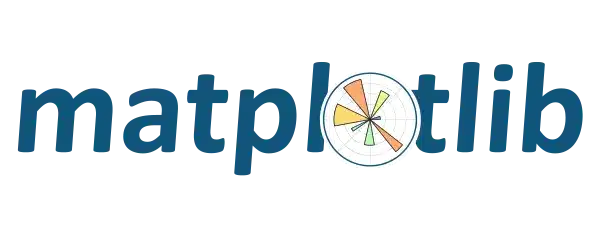

Our Latest Blogs
Python Course in Coimbatore: Job-Oriented Training with Placement Support
If you look at today’s job market, one skill consistently stands out across IT, data science, AI, automation, and web…
Best Artificial Intelligence Course to Build Your AI Career
Table of Contents Artificial Intelligence Course is no longer a futuristic concept—it is actively transforming how the world works…
Which Digital Marketing Skills Are Highest-Paying | Top Digital Marketing Course Institute Guide
In today’s fast-evolving digital economy, businesses of all sizes are relying heavily on online marketing strategies to grow their brand,…
Related Courses
AI Mastery For Entrepreneurs Programme
AI Mastery for Entrepreneurs Programme, designed for visionaries and business leaders. This program focuses on using AI for market research,...
AI Engineering For Developers
Advanced AI Engineering program crafted for developers aiming to build intelligent solutions. This course covers machine learning, deep learning, and...
AI Power Digital Marketing
Unlock the power of online marketing with our Digital Marketing Fundamentals Training Course. Master SEO, SEM, content marketing.

Recommend your friends/colleagues and earn gift vouchers worth up to INR 1000/-!
Invite friends to join our community, and receive valuable gift vouchers as a token of appreciation for each successful referral. Spread the word about our referral program today and start earning rewards!






















